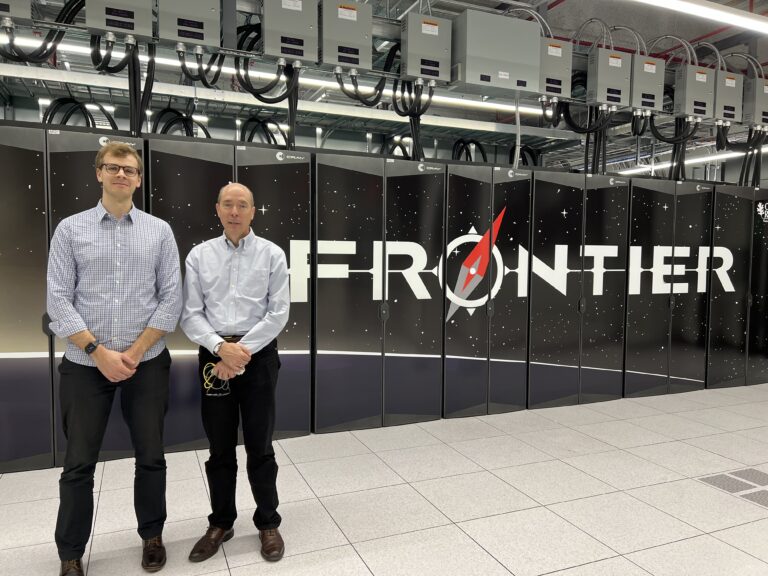Miles Couchman, a York University assistant professor in applied mathematics, Faculty of Science, is part of an international research collaboration featuring a multidisciplinary network of researchers – including applied mathematicians and mechanical, civil and environmental engineers – that has been been awarded a highly competitive 2024 Innovative and Novel Computational Impact on Theory and Experiment (INCITE) Supercomputing Award.
The winning collaborative project looks to better understand turbulence in stratified flows, notably scenarios where a fluid has variable density. One application of particular interest is developing more robust mathematical models for characterizing the turbulence-enhanced mixing of heat in the ocean, a leading area of uncertainty in global climate modelling and a topic of direct importance to global society.

The INCITE program, run by the Office of Science at the U.S. Department of Energy (DOE), grants 75 computational intensive science projects access to the world’s fastest supercomputers, located at the DOE’s Argonne and Oak Ridge national laboratories, to further innovation across the fields of science, engineering and computer science.
Couchman’s co-project was among 108 total proposals received by INCITE this year from international researchers or research organizations asking for supercomputer access. The evaluation process was highly competitive, with proposals evaluated over the course of four months based on computational readiness, the scalability of a project’s code and algorithms, and more.
Couchman’s team was awarded use of Frontier, the largest supercomputer in the world, in 2024 to perform numerical research simulations, allowing the researchers to simulate turbulent processes with unprecedented resolution, leading to more accurate and universal turbulent models. They hope what they learn won’t just apply to the mixing of heat in water, but how pollutants mix in the atmosphere and more.
The research team is made up of individuals from Duke University, the University of Washington and the University of Massachusetts, Amherst in the U.S., as well as the University of Cambridge in the U.K.
